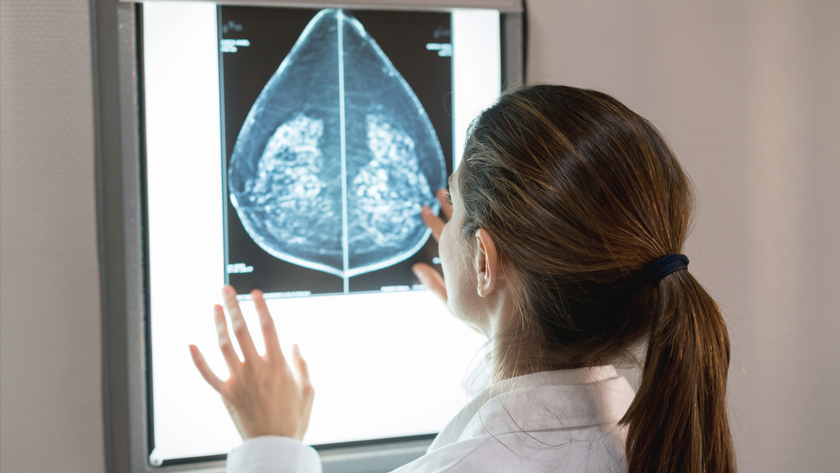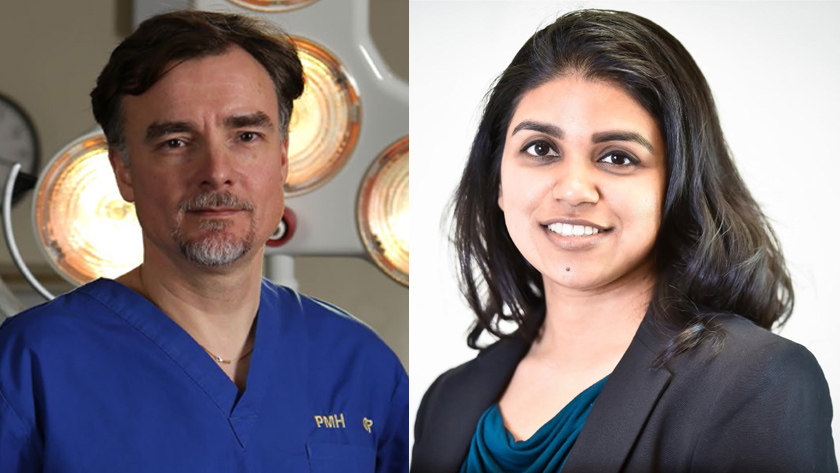
There are many sub-types of breast cancer and the triple-negative variety is particularly difficult to treat. A recent study from researchers led by Princess Margaret Cancer Centre Senior Scientist Dr. Michael Reedijk reports a promising new treatment strategy.
The new treatment strategy is centred on targeting a protein called Notch, which is present on the surface of cells in the body and is used by them to signal to one another. It also plays a role in making breast cancer aggressive and difficult to treat. One way that Notch influences cancer is through controlling the way that the cells of the immune system interact with cancer cells. Blocking Notch activity in tumours could help slow cancer growth and improve treatment outcomes.
The problem is that Notch is used by many cells all the time, so drugs that target Notch can have major side effects because they disrupt many essential bodily processes.
“Targeting Notch activity specifically within cancer cells would be a major step forward with widespread clinical potential,” explains Dr. Reedijk.
The team’s approach to this problem came from the insight that cancer cells do not exist in a normal environment: tumours are often places with low levels of oxygen and other irregularities. These factors cause cellular stress, and a cell’s response to stress can activate Notch.
By targeting another signalling pathway—called USP9x—which activates Notch in conditions of stress, the team identified a way to precisely target the Notch activity that is relevant to triple-negative breast cancer.
The team tested this approach in experimental models with promising results. “By targeting and reducing USP9x, we were able to reduce Notch levels and tumour growth without causing the side effects that are typically seen with treatments that broadly target Notch activity,” says Dr. Arushi Jaiswal, the first author of the study and a former graduate student in Dr. Reedijk’s laboratory.
The experimental treatment also changed the way that tumours interact with the immune system, an indication that they will be more susceptible to other therapies. This finding suggests that targeting USP9x could help advance the development of immunotherapies—approaches that help activate the immune system so it can better detect and kill cancer cells.
“This study provides pre-clinical evidence that it is possible to target USP9x and it is a promising approach to treat triple-negative breast cancer,” concludes. Dr. Reedijk. “Our findings lay a solid foundation for future studies and clinical trials.”
This work was supported by the Canadian Cancer Society, the Ontario Ministry of Health and Long-Term Care and The Princess Margaret Cancer Foundation. P Ohashi holds a Tier 1 Canada Research Chair in Autoimmunity and Tumour Immunity.
Jaiswal A, Murakami K, Elia A, Shibahara Y, Done SJ, Wood SA, Donato NJ, Ohashi PS, Reedijk M. Therapeutic inhibition of USP9x-mediated Notch signaling in triple-negative breast cancer. Proc Natl Acad Sci U S A. 2021 Sep 21. doi: 10.1073/pnas.2101592118

Dr. Michael Reedijk (left) is a Senior Scientist at the Princess Margaret Cancer Centre. Dr. Arushi Jaiswal (right) is the first author of the study and was a graduate student in Dr. Reedijk's lab.




